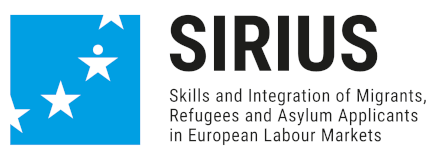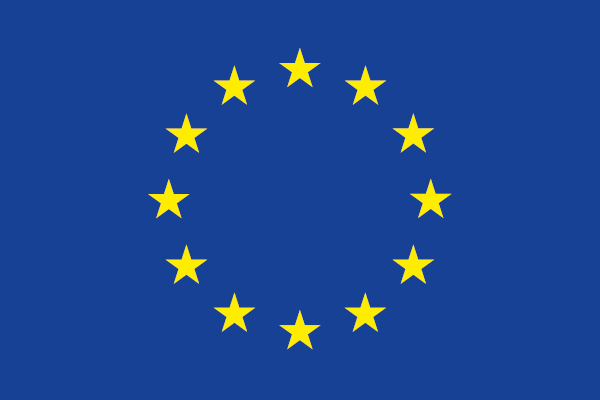Working Papers
STUDYING ENABLERS AND BARRIERS IN LABOUR MARKET INTEGRATION DYNAMICS FOR NON- EU MIGRANTS, REFUGEES AND ASYLUM SEEKERS: THE SIRIUS CONCEPTUAL FRAMEWORK
SIRIUS Project
This paper elaborates the conceptual framework that underpins the SIRIUS project. SIRIUS adopts a multi-dimensional understanding of ‘labour market integration’ in which an individual’s capacity to seek (and retain) employment is determined by a concurrent set of factors located at three different analytical levels: at the macro-(legal/institutional/policy), meso-(organizational) and micro- (individual). From this perspective, the legal and political-institutional, societal and individual-related conditions function either as enablers or as barriers that affect the labour market access of non-EU migrants, refugees and asylum seekers in European countries.Therefore, SIRIUS's multi-dimensional conceptual framework unfolds through a
sequence of six research work packages that comprise a coherent set of component actions addressing: a) macro-level barriers and enablers: labour market and, more generally, economic barriers and enablers (WP1), legal provisions (WP2), specific public policies (WP3); b) meso-level barriers and enablers: civil society (WP4), social partners (WP5), and; c) micro-level individual barriers and enablers (WP6).
Attachments![]() SIRIUS Conceptual Paper
SIRIUS Conceptual Paper
THE IMPORTANCE OF FOREIGN MIGRATION FOR SHIFTS IN THE SIZE OF THE LABOUR FORCE OF EUROPEAN COUNTRIES: METHODOLOGICAL INSIGHTS AND CONTEMPORARY EVIDENCE FROM SIRIUS AND FROM SELECTED NON-SIRIUS COUNTRIES
Christos Bagavos - Panteion University
Slowdown in population growth and population ageing challenge Europe, particularly in terms of the current and future supply of labour. In recent times, those demographic transformations take place in a context of increasing migration flows, which, along with current upward trends in the participation in the labour market of both native females and natives aged between 55-64 years, inevitably affect the total number of economically active persons. The study aims to highlight the importance of migration for labour force trends in selected European countries by placing migration in a comparative framework. It explores the separate contribution of specific groups selected on the basis of age, sex, migration status (migrants vs. non-migrants) and migrant’s origin (EU nationals vs. Non-EU nationals) to overtime changes in the total labour force. The paper points out that, up to date changes in the size of the labour force of the European countries under study are largely due to immigration; either because immigration accelerates labour force growth or leads to increasing trends in the overall labour force in a context of a shrinking number of native active persons. It highlights also that the rising importance of migration for labour supply in Europe would require further implementation of policies that support migrant integration into European labour markets. The paper is prepared in the context of the Horizon 2020 SIRIUS research. Therefore SIRIUS countries i.e. the Czech Republic (CZ), Italy (IT), United Kingdom (UK), Switzerland (CH), Greece (GR), Denmark (DK) and Finland (FI) are included in the analysis. To have a broader comparative view, we include 7 other European countries i.e. Austria (AU), Germany (DE), Norway (NO), the Netherlands (NL), Belgium (BE) and Spain (SP), which are selected on the basis of their history as receiving countries as well as the availability of data.
Attachments![]() SIRIUS_WorkingPaper_2
SIRIUS_WorkingPaper_2
THE POLITICS OF INTEGRATION: ADJUSTING TO NEW LIVES IN HOST SOCIETIES (SIRIUS FIRST WORKING PAPER)
Michelle Pace and Dogus Simsek - RUC University and Koç University
This paper outlines the academic debates on the topic of migrant and refugee integration. Given the diversity of migratory statuses, experiences and conditions around the world, we argue that the concept of integration needs to be carefully unpacked and contextualized. In rethinking integration, we contend that integration is not just about macro-level policy-making decisions, meso-level implementation or political discourses on these. A conception of integration must also include the perspective of those that are being told that they have to integrate. We therefore pay particular attention to the aspirations, experiences and actions of migrants, refugees and asylum seekers (MRAs), whether “integration” is a concept they think about, how “integration” is interpreted by these targeted subjects and how the diverse nature of migrants and their multiple characteristics shape integration opportunities and challenges.
Attachments![]() The politics of integration: adjusting to new lives in host societies
The politics of integration: adjusting to new lives in host societies


